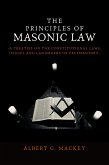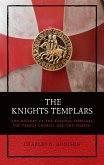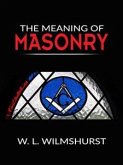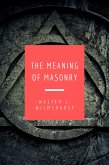The Knights Templars have become associated with legends concerning secrets and mysteries handed down to the select from ancient times. Their financial acumen, their military prowess and their work on behalf of Christianity during the Crusades still circulate throughout modern culture. They were formed in the early 12th century to protect pilgrims to Jerusalem from the Muslims. This large organization of devout Christians during the medieval era served the nations of Europe mightily in the Crusades. Unfortunately, over time they became too rich and powerful and in the mid-14th century, support for the order faded. This book describes the immoral scheme of the French King Philip IV and the Pope Clement V to arrest and try for heresy a lot of the Knights Templars (like James of Molay, the Last Grand Master). But the persecution of the Templars in the fourteenth century does not close the history of the Order; for, though the Knights were spoliated, the Order was not annihilated. James Burnes examines their beginning, their end and their legacy.
Edition with illustrations and complete dynamic footnotes.
Excerpt: “ It was in the year 1119, the twentieth of the Christian dominion in Syria, that nine pious and valiant Knights, the greater part of whom had been the companions of Godfrey de Bouillon, formed themselves into an association, the object of which was to protect and defend Pilgrims on their visits to the holy places. These Knights, of whom the two chief were Hugo de Payens and Godfrey de St. Omer, vowed, in honour of the sweet Mother of God, to unite Monkhood and Knighthood; their pious design met with the warm approbation of the King and the Patriarch, and in the hands of the latter they made the three ordinary vows of poverty, chastity, and obedience; and a fourth, of combating without ceasing against the heathen, in defence of Pilgrims and of the Holy Land; and bound themselves to live according to the rule of the canons of St. Augustine, at Jerusalem. The King assigned them for their abode a part of his palace, which stood close by where had stood the Temple of the Lord. He and his barons contributed to their support, and the abbot and canons of the Temple assigned them for the keeping of their arms and magazines the street between it and the royal palace, and hence they took the name of the soldiery of the Temple, or Templars.”
Edition with illustrations and complete dynamic footnotes.
Excerpt: “ It was in the year 1119, the twentieth of the Christian dominion in Syria, that nine pious and valiant Knights, the greater part of whom had been the companions of Godfrey de Bouillon, formed themselves into an association, the object of which was to protect and defend Pilgrims on their visits to the holy places. These Knights, of whom the two chief were Hugo de Payens and Godfrey de St. Omer, vowed, in honour of the sweet Mother of God, to unite Monkhood and Knighthood; their pious design met with the warm approbation of the King and the Patriarch, and in the hands of the latter they made the three ordinary vows of poverty, chastity, and obedience; and a fourth, of combating without ceasing against the heathen, in defence of Pilgrims and of the Holy Land; and bound themselves to live according to the rule of the canons of St. Augustine, at Jerusalem. The King assigned them for their abode a part of his palace, which stood close by where had stood the Temple of the Lord. He and his barons contributed to their support, and the abbot and canons of the Temple assigned them for the keeping of their arms and magazines the street between it and the royal palace, and hence they took the name of the soldiery of the Temple, or Templars.”









